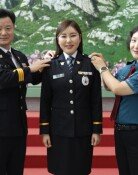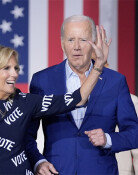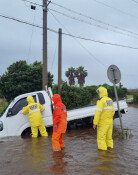[Editorial] Minister Chung Dong-youngs June 15 Pyongyang Test
[Editorial] Minister Chung Dong-youngs June 15 Pyongyang Test
Posted June. 14, 2005 03:04,
It is both hoped and of concern that Unification Minister Chung Dong-young will visit North Korea as the leader of the government delegation for the fifth anniversary of the June 15 Joint Declaration. His visit carries enormous implications in that it takes place at a time when the North Korean nuclear issue is reaching a major turning point. It is also an important political test for Minister Chung himself.
The historic meaning of the 2000 South-North Joint Declaration that the event is to celebrate cannot be downplayed. But it is true that there are downsides as well as upsides to it. While there has been a remarkable increase in inter-Korean cooperation, including the re-connection of railways and roads and the launch of pilot project at the Gaesong Industrial Complex, conflicts has emerged within the South over assistance to the North, and the Korea-U.S. alliance have been frayed. Worse, Pyongyang claimed that it has a nuclear program even after the joint declaration. Against this backdrop, some in the Bush administration sound skeptical, saying, The inter-Korean talks only bought some time for Pyongyang to develop a nuclear weapons program.
Presidents Roh Moo-hyun and George W. Bush made it clear in their fourth summit meeting held three days ago that they will never tolerate the Norths nuclear program and theres no new inducement just to bring Pyongyang back to the six-party talks. They said that North Korea would get commensurate rewards if it returns to the talks and renounces nuclear weapons.
Under the circumstances, Minister Chung should make a focused effort to persuade the North, making it clear that the window of opportunity will not be open forever. He should neither limit his role to assistance of the event held by the private sector nor make an unrealistic political promise based on the emotional cause of national cooperation. It is of particular concern that Chung, one of the prominent candidates for the next presidency in the ruling camp, would be obsessed with reaping tangible results in consideration of his political timetable. He should bear in mind that few politicians have benefited from using the North as a political card.
Dialogue with Pyongyang should be based on sharp calculations and firm principles. Moreover, a wrong agreement is worse than no agreement. As the minister in charge of national security, Chung should hopefully be committed to finding a breakthrough on the North Korean nuclear issue.







